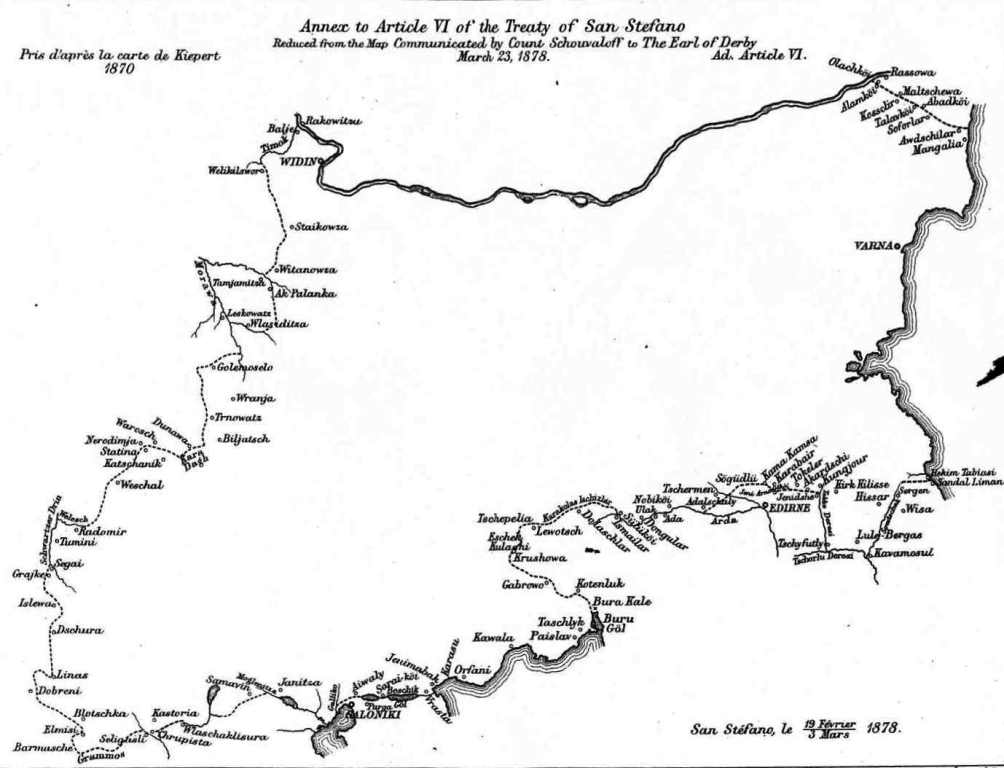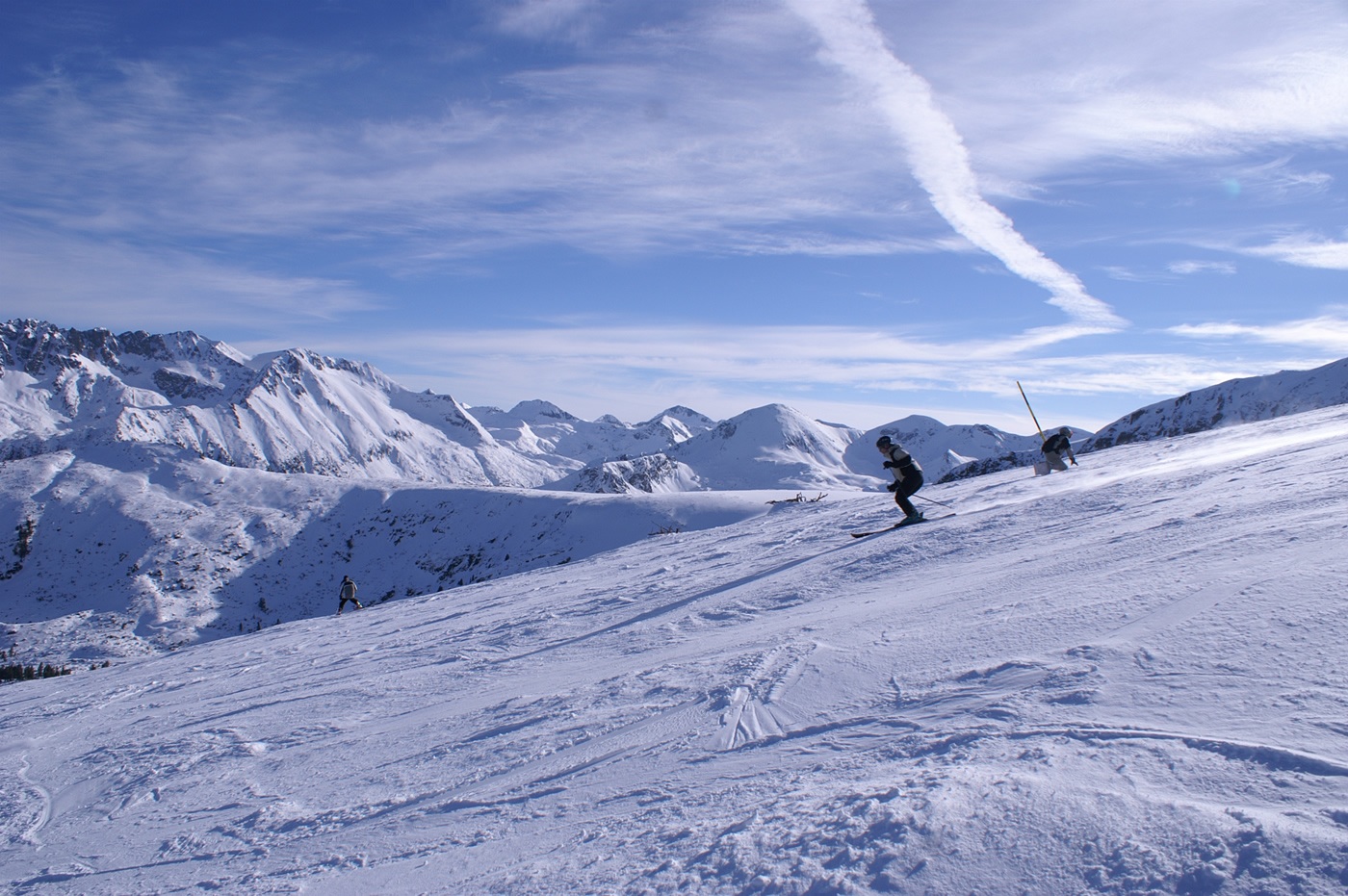|
Predel (Bulgaria)
Predel ( bg, Предел ) is a mountain saddle (pass) in western Bulgaria between the mountain ranges of Rila to the north and Pirin to the south. It is situated on the territory of the Simitli and Razlog municipalities in Blagoevgrad Province. The pass is 20 km long with a maximum altitude of 1140 m. It connects of the valley of the river Struma in the west with the Razlog Valley in the east. It begins to the north-east from the village of Gradevo at 531 m altitude and runs in eastern and south-eastern direction upstream of the Elovitsa valley of the Struma basin. It reaches its highest point in 12.9 km and then descends along the valley of the river Iztok of the Mesta drainage. After 7.1 km it enters the westernmost area of the Razlog Valley at an altitude of 890 m. A 20 km long section of the II-19 second-class road Simitli–Bansko–Gotse Delchev– Ilinden traverses the pass. Due to the increased tourist traffic to the ski resort of ... [...More Info...] [...Related Items...] OR: [Wikipedia] [Google] [Baidu] |
Nat Road 19 BG
Nat or NAT may refer to: Computing * Network address translation (NAT), in computer networking Organizations * National Actors Theatre, New York City, U.S. * National AIDS trust, a British charity * National Archives of Thailand * National Assembly of Thailand, the national parliament People and ethnic groups * Nat (name), a given name or nickname, usually masculine, and also a surname * Nat (Muslim), a Muslim community in North India * Nat caste, a Hindu caste found in northern India and Nepal Places * Nat, Punjab, India, a village * Nat, West Virginia, United States, an unincorporated community * Greater Natal International Airport, São Gonçalo do Amarante, Brazil (IATA code NAT) ** Augusto Severo International Airport (closed), former IATA code NAT Science and technology Biology and medicine * Natural antisense transcript, an RNA transcript in a cell * N-acetyltransferase, an enzyme; also NAT1, NAT2, etc. * Nucleic acid test, for genetic material * Neonatal alloimmune ... [...More Info...] [...Related Items...] OR: [Wikipedia] [Google] [Baidu] |
Principality Of Bulgaria
The Principality of Bulgaria ( bg, Княжество България, Knyazhestvo Balgariya) was a vassal state under the suzerainty of the Ottoman Empire. It was established by the Treaty of Berlin in 1878. After the Russo-Turkish War ended with a Russian victory, the Treaty of San Stefano was signed by Russia and the Ottoman Empire on 3 March 1878. Under this, a large Bulgarian vassal state was agreed to, which was significantly larger: its lands encompassed nearly all ethnic Bulgarians in the Balkans, and included most of Moesia, Thrace and Macedonia, stretching from the Black Sea to the Aegean. However, the United Kingdom and Austria-Hungary were against the establishment of such a large Russian client state in the Balkans, fearing it would shift the balance of power in the Mediterranean. Due to this, the great powers convened and signed the Treaty of Berlin, superseding the Treaty of San Stefano, which never went into effect. This created a much smaller principalit ... [...More Info...] [...Related Items...] OR: [Wikipedia] [Google] [Baidu] |
Congress Of Berlin
The Congress of Berlin (13 June – 13 July 1878) was a diplomatic conference to reorganise the states in the Balkan Peninsula after the Russo-Turkish War of 1877–78, which had been won by Russia against the Ottoman Empire. Represented at the meeting were Europe's then six great powers: Russia, Great Britain, France, Austria-Hungary, Italy and Germany; the Ottomans; and four Balkan states: Greece, Serbia, Romania and Montenegro. The congress concluded with the signing of the Treaty of Berlin, replacing the preliminary Treaty of San Stefano that had been signed three months earlier. The leader of the congress, German Chancellor Otto von Bismarck, sought to stabilise the Balkans, reduce the role of the defeated Ottoman Empire in the region, and balance the distinct interests of Britain, Russia and Austria-Hungary. He also wanted to avoid domination of the Balkans by Russia or the formation of a Greater Bulgaria, and to keep Constantinople in Ottoman hands. Finally Bismarck ... [...More Info...] [...Related Items...] OR: [Wikipedia] [Google] [Baidu] |
Kresna–Razlog Uprising
The Kresna–Razlog Uprising ( bg, Кресненско-Разложко въстание, ''Kresnensko-Razlozhko vastanie''; mk, Кресненско востание, ''Kresnensko vоstanie'', Kresna Uprising) named by the insurgents the Macedonian Uprising, was a Bulgarian uprising against the Ottoman rule, predominantly in the areas of today Pirin Macedonia (now in Bulgaria) in late 1878 and early 1879. It broke out following the protests and spontaneous opposition to the decisions of the Congress of Berlin, which, instead of ceding the Bulgarian-populated parts of Macedonia to the newly reestablished Bulgarian suzerain state per the Treaty of San Stefano, returned them to Ottoman control. It was prepared by the Unity Committee. The rebellion was supported by detachments which had infiltrated the area from the Principality of Bulgaria. As a result of disagreement within its leadership, the uprising lost its initial successful curse and was crushed by the Ottoman army. The ... [...More Info...] [...Related Items...] OR: [Wikipedia] [Google] [Baidu] |
Ilinden, Blagoevgrad Province
Ilinden ( bg, Илинден ) is a village in Hadzhidimovo Municipality, in Blagoevgrad Province, Bulgaria. It is located in a mountainous area, on the northern slopes the Stargach mountain. It is 14 kilometers southwest of Hadzidimovo Municipal Center and 18 kilometers southeast of Gotse Delchev. The climate is transitional Mediterranean with mountain influence with summer minimum and winter maximum of rainfall. The average annual rainfall is about 700 mm. The Mutnitsa River flows through the village. The soils are predominantly humus-carbonate. History The old name of the village before 1951 is Libyahovo. According to professor Ivan Duridanov, the settlement name Libyahovo with an earlier form, Lyubyahovo, comes from the personal name Lyubyah. According to a local legend, the name comes from the name of one Ali Bey, and according to another, from the great love (lyubov in Bulgarian), uniting his inhabitants against the Ottoman rule during the Ottoman rule. There are ruins ... [...More Info...] [...Related Items...] OR: [Wikipedia] [Google] [Baidu] |
Gotse Delchev (town)
Gotse Delchev ( bg, Гоце Делчев ), is a town in Gotse Delchev Municipality in Blagoevgrad Province of Bulgaria. In 1951, the town was renamed after the Bulgarian revolutionary hero Gotse Delchev. It had hitherto been called Nevrokop (in bg, Неврокоп, ; in el, Άνω Νευροκόπι, ''Ano'' ; and in tr, Nevrokop). Nearby are the remains of a walled city established by the Romans in the 2nd century AD. The town was a kaza in the Siroz sanjak of the Salonica vilayet before the Balkan Wars. Geography Gotse Delchev is situated in a mountainous area, about from the capital Sofia and from the city of Blagoevgrad in the southern part of Blagoevgrad district. The town center is above sea level. The Gotse Delchev Hollow is characterized by a continental climate; rainfall occurs mainly during spring and autumn, and summers are hot and dry. Winter temperature inversions are possible. Population History Antiquity and Medieval period Nicopolis ad Nestum ... [...More Info...] [...Related Items...] OR: [Wikipedia] [Google] [Baidu] |
Bansko
Bansko ( bg, Банско ) is a town in southwestern Bulgaria, located at the foot of the Pirin, Pirin Mountains at an elevation of 1200m AMSL, above sea level. It is a ski resort. Legends There are several legends about who founded Bansko. According to one, Bansko was founded by people who lived in Dobarsko, a village in Rila, itself, according to a legend, founded by the blinded army of Tsar Samuil of Bulgaria, Samuil. Another legend claims that Bansko was founded by an Italy, Italian painter by the name of Ciociolino, hence the existence of the name Chucholin in Bansko. Still according to another version it was a Slavic tribe called the Peruns, who lived in Pirin and worshiped Perun, that founded the village later to become a town. There are a number of ethnographic texts, legends, prayers and oratories, which lend credence to this legend. History Archeological traces of the inhabitants of Bansko and the Razlog Valley in general date to the early times of the Roman Empire. ... [...More Info...] [...Related Items...] OR: [Wikipedia] [Google] [Baidu] |
Simitli
Simitli ( bg, Симитли ) also known as Simitliya ( bg, Симитлия), is a town in Blagoevgrad Province in southwestern Bulgaria. It has a population of 7,454 and is located 17 km south of Blagoevgrad. It is the seat of Simitli Municipality. Geography The city of Simitli lies at the crossroads for the turn to Bansko and Pirin Mountains off the Sofia-Thessaloníki E-79. Geographical locations of note are the Komatinski Cliffs between Brestovo and Sushitsa, the Kresna Gorge of the Struma River, and the foothills of the Pirin Mountains at Senokos. Transportation Simitli lies on E-79 which connects Sofia to the Greek Border. Simitli is also part of the Bulgarian State Railways network from Greece to Sofia. Simitli is also the intersection of E-79 and the road to Bansko and the Pirin Mountains. Tourism Some of the best whitewater rapids in the Balkans can be found on the Struma river in the Kresna Gorge. The rafting and kayaking season is from April to July and the ... [...More Info...] [...Related Items...] OR: [Wikipedia] [Google] [Baidu] |
Nestos (river)
Nestos ( ), Mesta ( ), or formerly the Mesta Karasu in Turkish (Karasu meaning "black river"), is a river in Bulgaria and Greece. It rises in the Rila Mountains and flows into the Aegean Sea near the island of Thasos. It plunges down towering canyons toward the Aegean Sea through mostly metamorphic formations. At the end, the main stream spreads over the coastal plain of Chrysoupolis and expands as a deltaic system with freshwater lakes and ponds forming the Nestos delta. The length of the river is , of which flow through BulgariaStatistical Yearbook 2017 , p. 17 and the rest in [...More Info...] [...Related Items...] OR: [Wikipedia] [Google] [Baidu] |
Bulgaria
Bulgaria (; bg, България, Bǎlgariya), officially the Republic of Bulgaria,, ) is a country in Southeast Europe. It is situated on the eastern flank of the Balkans, and is bordered by Romania to the north, Serbia and North Macedonia to the west, Greece and Turkey to the south, and the Black Sea to the east. Bulgaria covers a territory of , and is the sixteenth-largest country in Europe. Sofia is the nation's capital and largest city; other major cities are Plovdiv, Varna and Burgas. One of the earliest societies in the lands of modern-day Bulgaria was the Neolithic Karanovo culture, which dates back to 6,500 BC. In the 6th to 3rd century BC the region was a battleground for ancient Thracians, Persians, Celts and Macedonians; stability came when the Roman Empire conquered the region in AD 45. After the Roman state splintered, tribal invasions in the region resumed. Around the 6th century, these territories were settled by the early Slavs. The Bulgars, led by Asp ... [...More Info...] [...Related Items...] OR: [Wikipedia] [Google] [Baidu] |
Gradevo
Gradevo is a village in Simitli Municipality, in Blagoevgrad Province, in southwestern Bulgaria Bulgaria (; bg, България, Bǎlgariya), officially the Republic of Bulgaria,, ) is a country in Southeast Europe. It is situated on the eastern flank of the Balkans, and is bordered by Romania to the north, Serbia and North Macedon .... Accessed May 5, 2010 References Villages in Blagoevgrad Province {{Blagoevgrad-geo-stub ...[...More Info...] [...Related Items...] OR: [Wikipedia] [Google] [Baidu] |




